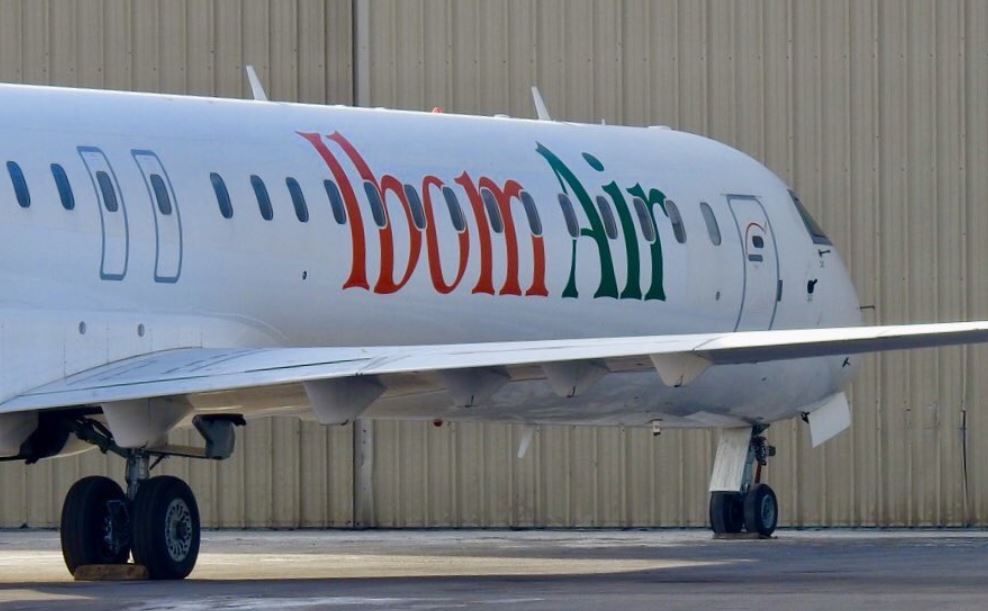Those of us who rush to the Victor Attah International Airport to catch early morning flights out of Akwa Ibom state are used to a familiar sight: airport workers, some donning their reflective safety vests, waiting by the roadside and fervently flagging down motorists for lifts to the airport. I usually wonder how many of them get lucky each day. Well, all that will end in a year when the 117 residential apartments the state government is building for them are completed. Dubbed Aviation Village, the residential estate sits on 15.072 hectares of land within the airport premises and comprises 62 two-bedroom bungalows and 55 three-bedroom bungalows.
The accommodation is for both state government and federal workers in 12 agencies: Ibom Airport Development Company Limited; MRO; NAHCO; NCAA; FAAN; NEMA; Customs; NDLEA; Immigration Service and other aviation staff. There will be a primary school, shopping centre, recreation and health facilities. The state is investing heavily in the aviation sector to boost its weak industrial and commercial base.
With an IGR of N43.8 billion in 2023, Akwa Ibom ranks fourth in Niger Delta and 10th in Nigeria in the IGR table, but the government is eager to push up the numbers with dividends from the state-owned airline, Ibom Air, and earnings from the MRO (maintenance, repair and overhaul) facility. For fiscal 2024, the government expects the figure to climb to N62.5 billion.
Ibom Air, the state-owned carrier, is expected to be a major revenue earner for the government as of next year. It broke even in 2022, three years after it began operations, but fell back into the red in 2023 due to the massive devaluation of the naira. With increased earnings and effective cost control in 2024, it has swung back into the positive arena and is expected to declare its first dividend in 2025.
Advertisement
The airline is growing rapidly, outperforming expectations. In a nation where many privately owned airlines and the national carrier have collapsed, Ibom Air’s success has motivated other states to seek to float their own airlines. Informed sources say the airline grosses between N700 million and N900 million daily in revenue, a healthy cash flow that enables it to meet its obligations to its bankers.
Prudent management; reliable and good quality service and strict adherence to good corporate governance are the critical success factors. Non-interference in management by government and the politicians has also helped a lot. ‘’Even the governor pays for his ticket whenever he travels with us; and he’s never interfered with our activities, including staff recruitment’’, said a senior official.
Of its nine planes, seven were financed with bank loans, while the last two were funded with shareholders’ loans at concessionary rates (meaning the Akwa Ibom state government paid cash for them, and repayment would be at no interest). That saved the airline from additional excruciating interest charges. No fewer than five other states, including Lagos, are thinking of floating their own airlines. Even Ebonyi, whose airport is yet to start operations two years after commissioning, also wants to plunge into the business.
Advertisement
The MRO will be another source of income for the state, and with full completion only a few months away, some African airlines have already expressed interest in its use. In terms of size and capabilities, there are only four of this type of MRO in Africa. The other three are in Ethiopia; Morocco and South Africa. Pending when it becomes fully operational next year, the Akwa Ibom MRO is currently providing limited service to Ibom Air only; but on completion, it hopes to serve the African market in the initial growth phase.
African Airlines spend hundreds of millions of dollars on repairs and overhauls at foreign MROs. In 2019, Ethiopian Airlines disclosed that it made $80 million yearly from its MRO facility in Addis Ababa. Akwa Ibom government is hoping for a piece of the pie next year – one of the reasons it’s projecting a 28% IGR growth to N80 billion in 2025, according to next year’s budget estimates.
At the groundbreaking ceremony for the construction of the Aviation Village this week, Gov. Umo Eno said he is dedicated to the ‘’the expansion of the aviation ecosystem in the state’’, and pledged to make Akwa Ibom Nigeria’s major aviation hub in the Gulf of Guinea. The state has built a modern, fully automated airport terminal building which would be put to use this December; and with more aircraft coming next year, the state-owned carrier plans to open new regional routes to Cameroun; Equatorial Guinea; Kenya and Rwanda direct from Uyo. A direct flight to Atlanta, I understand, is also on the drawing board, and this would make the state Nigeria’s second aviation hub, after Lagos.
The government believes that with aviation, the state will climb out of the league of those states that rely solely on FAAC allocations and grow its economy. Over 3,000 people have direct and indirect employment in the sector currently, and the number will likely rise as the fleet expands and the facilities become operational. In October, BudgIT published a report which highlighted the overdependence of 32 states on federal allocations; meaning that they are vulnerable to external shocks, like a crash in crude oil prices.
Advertisement
Views expressed by contributors are strictly personal and not of TheCable.









